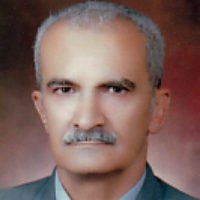Analysis and interpretation of Modality and Syntactic Voice in Literary texts of Arash Kangargar and Derafsh Kaviani Poetry
In stylistic analysis of text and viewpoints of the poet, it is important to examine and identify “categories of modality and syntactic voice” of the layered stylistics structure. The purpose of this paper is to understand the correlation between modality with meaning of speech, degree of certainty of lyrics, and determination of the poet's words. In order to discover the relationship between the poet's language and his insight and worldview using a descriptive-analytical method, three syntactic modality variables including verb, adverb and adjective as well as two active and passive syntactic voice were examined in two valuable collections of contemporary poetry, Arash the Archer and Derafsh Kaviani. The research findings indicated that there is a consistent and complementary relationship between syntactic structures and speech content. Indicative mood, as a dominant mood with definite degree of expression, makes statement about Arash the Archer and Derafsh Kaviani. With great interest and based on the needs of society, Kasraei and Mosadeq tried to restore those myths. Passive voice is the most frequent syntactic voice. However, in the texts of this study, as the sentences with intransitive and copular verbs cannot be passive, they work in the opposite way of diagnostic criteria so the active voice overcome the passive voice and adds to the authoritative power of the speaker's words. Four stylistic components – dynamic poetic syntax, emotional and idealistic stylistic form, two views of hope and disappointment, and overt and covert position – are created by the confluence of two syntactic layers.
-
Investigating the rights of parents towards their children according to the narrative of traditional Iranian literature (from the 5th to the 7th century)
Ashraf Khairkhah, *
Scientific Quarterly of Interpretation and Analysis of Persian Language and Literature Texts (Dehkhoda), -
Beauty and Aestheticism in Molana’s Masnavi with a Focus on Prophecy and Testimony as the Central Metaphors
AliAsghar Abedi, *, Fateme Heydari
Scientific Quarterly of Interpretation and Analysis of Persian Language and Literature Texts (Dehkhoda),


